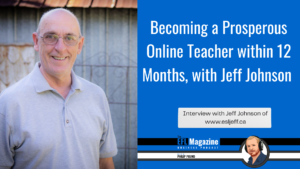Learning Enhancers and Effective Learning Strategies
Effective learning strategies have always been a part of my professional reflection. I have lost count of the times I have tried to clarify which strategies help in acquiring proficiency in a foreign language. Reflection is indeed a part of teaching, and after years of being in the profession it becomes second nature. We reflect on our goals and outcomes, good and bad days, lesson plans, instructions, you name it. Reflection, though, is a bit one-sided, because we tend to focus more on teaching, yet, neglect learning. Predominantly, we give priority to our in-class time, but we do not question the quality of our students’ independent work. You might say that it is so natural and that there is no obvious imbalance here. Right. We, teachers, focus on teaching because it is something tangible for us. We experience it. A students independent learning is not something we are privy to. So how can we comment on it? My answer is that we can, and we should.
Ineffective Learning Loop
Let me paint a portrait of an average Joe who comes to class two or three times a week and is highly motivated in succeeding in his high-stakes test (IELTS, TOEFL, SAT, etc.). Joe is a diligent student, and we are responsible teachers. Lessons are planned and taught in a productive and well-sequenced way. Chemistry happens and Joe leaves the class fully armed with plenty of information to process, new knowledge to digest and a new assignment to complete. Joe arrives home and now is the the time that the precious, independent, effective learning should happen. However, time flies and Joe keeps postponing his studies, struggles with myriad distractions and temptations. Joe then pulls an all-nighter to finish his homework by the deadline. The same pattern happens again and again. Joe is in the loop of ineffective learning. He is running out of stream. Not the most effective learning style, is it?
The Way to Effective Learning Strategies
The description given above is so common that we just take it for granted as something we, teachers, have no control over. I feel sympathy for those Joes who are so often in motion (speculating about studies, watching YouTube videos such as “How to score band 9 in IELTS”, downloading study apps, etc) but so rarely in action. As James Clear states in his book “Atomic Habits”: “Sometimes motion is useful, but it will never produce an outcome by itself.”
So what is wrong here? How can we help our students to become effective learners?
The answer is: we need to teach students how to learn by raising their awareness of effective learning. For example, when I see that my student emails me the assignment at around 3 am, I raise my eyebrows and initiate a chat with the student, as there is nothing more important than him getting an adequate amount of sleep.
Usually, junior and senior high school students are quite prone to having such open talks. They realise that in a couple of years, university life will start and the workload will be really high: it makes sense to know how to learn in advance.
Driving Towards Success, Instead of Derailing from Goals
As it is well-known, motivation and willpower are not reliable companions in marathon-like study sessions: their life span is too short. What should a student rely upon? I believe AWARENESS is the driving force to success. Awareness of effective learning strategies which differ greatly from cramming, lack of planning (spacing), pulling all-nighters, etc. It sounds so obvious to us teachers, but students have really no idea about effective learning.
I often hear excuses from my students that they could not push themselves to complete a task. There is nothing to be ashamed of! It is more than normal to procrastinate. The only thing students need to know is how that procrastinating mechanism works, and how to combat it. The same logic works when it comes to other false (usually intuitive) approaches to learning.
Here is my list of topics (or ‘learning enhancers’, as I call them) that students can benefit from being aware of:
1. difference between long-term and short-term memory
2. role of diffuse and focused modes in learning
3. sleep and its impact on learning
4. procrastination and how to combat it
5. learning as a habit that should be formed
6. spaced repetition and retrieval practice
HOW and When We Can Teach Effective Learning Strategies.
I will pre-empt the objection that will undoubtedly follow: “There is not enough in-class time to cover the curriculum, how can we allocate even more time for mentioning these enhancers?” I am totally with you here, that is why these are the ideas that I would like to share:
- agree with teachers of other subjects (as it is not just about English) to split the topics and cover them in different lessons.
- launch a project ‘Effective Learning journaling”. Let students exchange their experience and think about the issue.
- make a list of recommended books about the subject, or what is even better, put the books on the front shelf in your school library. You can suggest reading them in your students’ mother tongue. By the way, this is my top 5 list of resources that I can recommend: “Make it stick” by Peter C. Brown, “Atomic Habits” by James Clear, “Why do we sleep” Matthew Walker, “Mindset: The New Psychology of Success” by Carol Dweck and a course on Coursera “Learning how to learn”
- tailor some exam practice materials or grammar revision exercises on the basis of texts highlighting the idea of the enhancers. Thus, we kill two birds with one stone! While preparation is required, I believe it is something worth spending time on.
- spice up English lessons and add a bit of experimentation! Why not keep track of student achievements “before” and “after” using the chosen enhancers.
What would you add to the list of learning enhancers? How would you incorporate them into your school routine?




